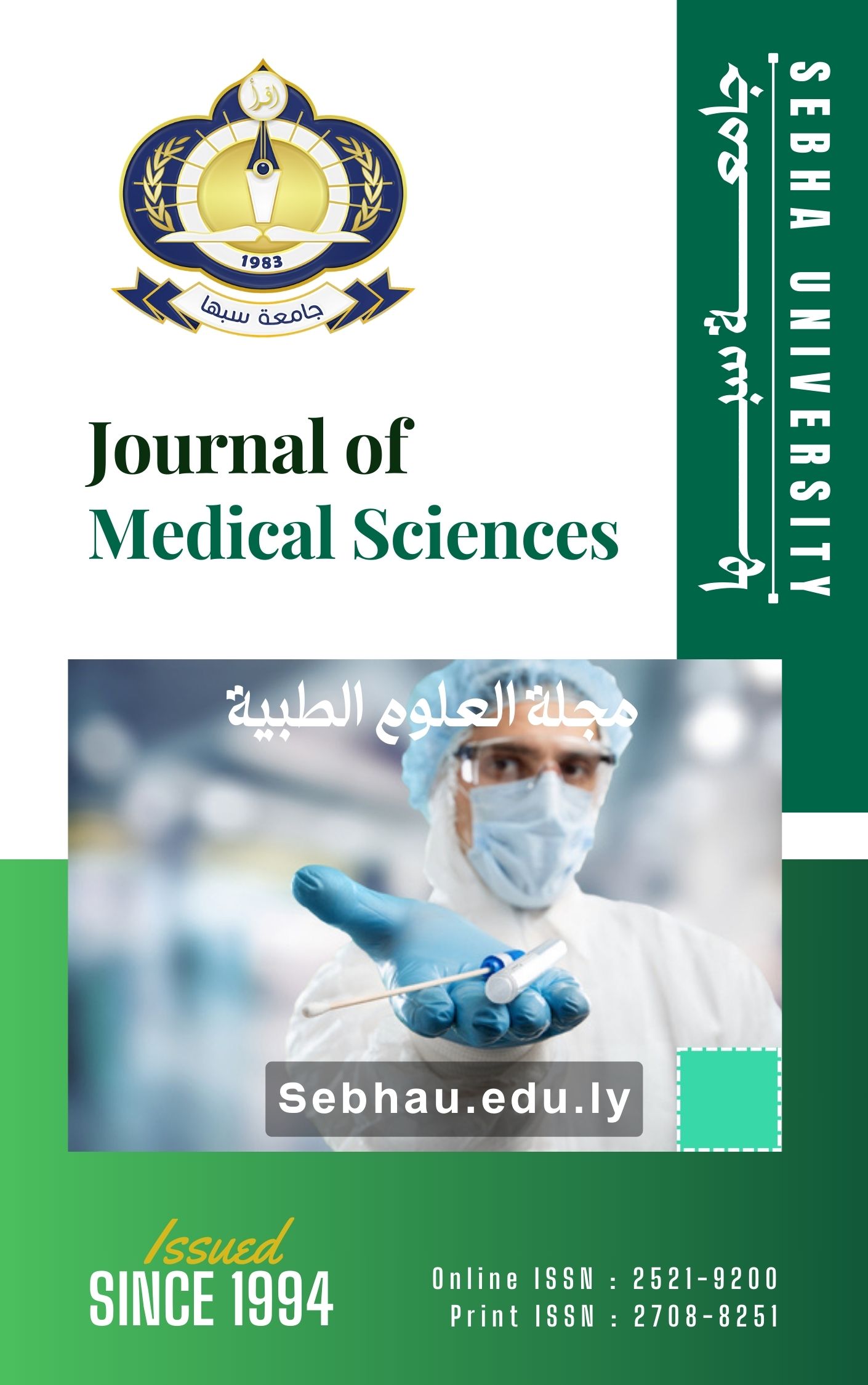Accidental chemical poisoning: Cases recorded at Benghazi Children’s Hospital (2018-2022)
DOI:
https://doi.org/10.51984/joms.v19i1.3068Keywords:
Cannabis, Chemical poison, Drug ingestion, Kerosene, PoisoningAbstract
Children are more exposed to chemical poisoning incidents due to their desire to explore and love to see things they have. The aim of the study is to identify cases of chemical poisoning recorded at Benghazi Children's Hospitalf rom January 2018 - December 2022 were used. The results showed the highest rate of drug poisoning (70.9%) in children. The lowest percentage of cannabis was (5.5%), and it included age groups under 5 years of age (64.2%), and most cases appeared in males. The highest cases of drug poisoning were recorded in the winter, followed by poisoning with phosphorus compounds in the autumn, while kerosene cases were recorded in summer season. Hospital records show that most of the poisoning cases have been treated, while 6 children died (4 kerosene and 2drug injections). we need to educate parents about ways to deal with these substances and keep them out of the reach of children.
Downloads
Downloads
Published
License
Copyright (c) 2024 Journal of Medical Sciences

This work is licensed under a Creative Commons Attribution-NonCommercial-ShareAlike 4.0 International License.
In a brief statement, the rights relate to the publication and distribution of research published in the journal of the Sebha University, where authors who have published their articles in the Sebha University journal can use or distribute their articles. They reserve all their rights to the published works, such as (but not limited to) the following rights:
- Copyright and other property rights related to the article, such as patent rights.
- Research published in the journal of the University of Sebha and used in its future works, including lectures and books, the right to reproduce articles for their own purposes, and the right to self-archive their articles.
- The right to enter a separate article, or for a non-exclusive distribution of their article with an acknowledgment of its initial publication in the journal of Sebha University.
- Privacy Statement The names and e-mail addresses entered on the Sebha University Journal site will be used for the aforementioned purposes only and for which they were used.






